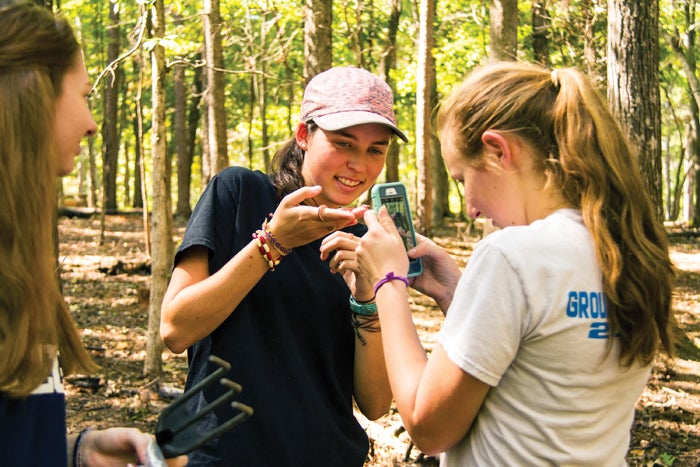Catawba students learn about local species diversity
Published 12:00 am Thursday, September 28, 2017

- Emily Atchley, Emily Pratt, and Abby Kluttz admire a small worm snake found while searching for land snails. Submitted photo
Catawba College News Service
SALISBURY — Several students from Dr. Joe Poston’s conservation biology class at Catawba College attended a meeting of the Greater Uwharries Conservation Partnership at Morrow Mountain State Park on Sept. 21. While there, students learned about a map under development to track areas of conservation concern, heard a presentation on the new North Carolina Biodiversity Project and learned about land snail diversity in the region. They even participated in a land snail collection and identification workshop.
The meeting was an excellent opportunity for students to observe how the topics they learn in class are applied by professionals in conservation biology. For example, they learned that knowledge about snail distribution patterns in North Carolina is still quite rudimentary. The database does not yet include any records from Rowan County.
“This trip helped me understand more of what goes on behind the scenes when mapping out where certain species are located. There are a lot more snail species and even individuals in the area than I’d ever realized, and I’d never really thought about what went into studying the locations and behaviors of such small organisms until now,” student Emily Pratt said.
The mapping tools on display helped students understand why it is important for them to learn mapping technologies, such as geographic information system.
“I learned a great deal about the many different snail species and how their ranges can be mapped. I also learned about the importance of varied data sources when mapping populations,” student Abby Kluttz said.
Moreover, students learned about efforts to preserve all types of organisms.
“In conservation biology most of the time it seems to be focusing on larger species such as mammals and birds and we sometimes forget about the smaller species. Conservation biology doesn’t discriminate on what should be protected because one of the goals is to maintain biodiversity. I would have never thought about the land snails and after today I find myself thinking about all of the species and what makes them special,” student Julieanna Herriven.
Students chatted with federal, state and local conservation biologists and made connections that could lead to internships or even jobs after they graduate.
“Students in Catawba’s Environment and Sustainability programs have a passion for the natural world. That passion was on display for conservation professionals, who were impressed with our students’ commitment to conservation efforts,” Dr. Joe Poston said.



